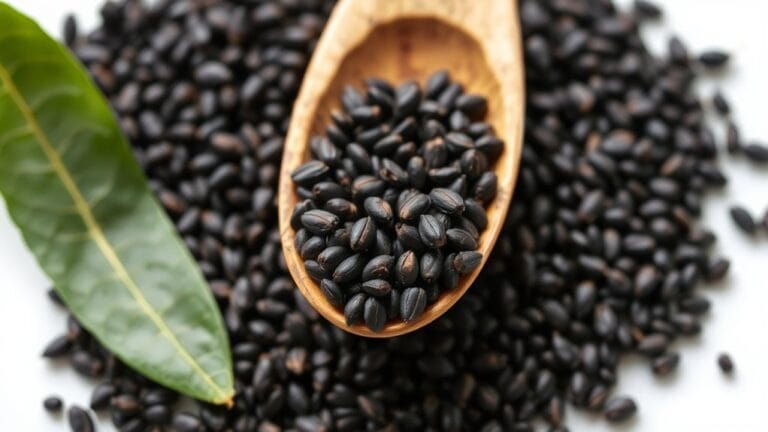Hydrangea (Hydrangea arborescens) is a popular ornamental shrub known for its beautiful flowers, but the root of this plant also offers various health benefits. Hydrangea root has been used in traditional medicine, particularly in Native American herbal practices and Traditional Chinese Medicine (TCM), for its therapeutic properties.
The root contains various compounds that contribute to its medicinal benefits, particularly for the urinary system, inflammation, and detoxification. Let’s explore the potential health benefits of hydrangea root.
The Medicinal Properties of Hydrangea Root
Hydrangea root has been used for centuries in traditional medicine, particularly for its potential benefits in supporting kidney and bladder health. Research suggests its anti-inflammatory properties may help reduce swelling and irritation in these organs, offering relief to those struggling with discomfort.
The root’s pain relief potential has also been noted, making it a gentle option for individuals seeking natural alternatives. Studies indicate that compounds in hydrangea root may support urinary tract function, though more research is needed to confirm these effects.
For caregivers and health practitioners, hydrangea root presents a promising option to explore for those under their care. Its historical use lends credibility, while modern interest focuses on its soothing qualities.
The root’s ability to ease inflammation could benefit those with chronic conditions, providing a sense of comfort. While not a cure-all, its role in holistic wellness remains valuable for those prioritizing gentle, natural support.
Traditional Uses of Hydrangea Root in Herbal Medicine
Hydrangea root has long been valued in Native American remedies for supporting kidney and bladder health.
In Chinese herbal medicine, it has been used to address conditions like inflammation and joint discomfort. Both traditions highlight its role as a natural remedy for common ailments.
Native American Remedies
Many Native American tribes valued the hydrangea root for its healing properties, often using it to support kidney and bladder health.
As one of the key native american medicinal plants, it was traditionally brewed into teas or poultices to address urinary issues and reduce inflammation. Indigenous herbal remedies often incorporated the root for its diuretic effects, helping to flush toxins from the body. The Cherokee, for example, used it to ease kidney stones, while other tribes relied on it for general detoxification.
Modern research supports some of these uses, with studies showing hydrangea root may help maintain urinary tract health. Its historical role in tribal medicine highlights a deep understanding of natural healing, offering insights for those seeking gentle, plant-based solutions today.
Chinese Herbal Applications
Beyond its role in Native American traditions, hydrangea root has also held a place in Chinese herbal medicine for centuries. Practitioners valued its hydrangea root compounds for supporting kidney health and easing discomfort. Chinese medicine traditions often paired it with other herbs to enhance its benefits.
| Traditional Use | Preparation Method |
|---|---|
| Kidney support | Decoction (boiled in water) |
| Discomfort relief | Powdered and mixed with tea |
| Urinary health | Combined with other herbs |
The root’s gentle action made it a trusted choice for those seeking natural care. Today, its legacy continues as modern herbalists explore its potential. With a history rooted in compassion, hydrangea root remains a symbol of holistic healing.
How Hydrangea Root Supports Kidney and Bladder Health
Hydrangea root has been traditionally used to support urinary tract function by encouraging healthy fluid balance.
It may help reduce the risk of kidney stones by preventing mineral buildup in the kidneys. Additionally, its anti-inflammatory properties can provide relief for bladder irritation.
Promotes Urinary Tract Function
Since the kidneys and bladder work together to filter waste, hydrangea root has been traditionally used to support their natural function. Its properties may improve kidney function by encouraging healthy filtration, while also supporting urinary tract health by promoting balanced fluid flow.
Research suggests compounds in hydrangea root help maintain the bladder’s ability to eliminate toxins efficiently, which may ease discomfort linked to occasional urinary sluggishness. Around 1 in 3 adults experience mild urinary issues, making gentle support valuable.
Reduces Kidney Stone Risk
While kidney stones affect roughly 1 in 10 people at some point, hydrangea root may help lower the chances of their formation by supporting the body’s natural detox processes. Research suggests its compounds act as a gentle diuretic, flushing excess minerals that contribute to stone development.
For those seeking kidney stone prevention, hydrangea root’s ability to break down calcium deposits could play a key role in the reduction of stone risk. Its anti-inflammatory properties may also ease urinary discomfort, though its primary benefit lies in preventing buildup before issues arise.
Supports Bladder Inflammation Relief
When bladder inflammation strikes, discomfort can make everyday life feel like an uphill battle, but hydrangea root may offer soothing support. Known for its gentle diuretic properties, it promotes urine flow, helping to flush out irritants that contribute to discomfort.
Studies suggest its compounds reduce inflammation, easing the burning sensation often linked to urinary issues. For those seeking natural relief, hydrangea root’s mild action makes it a supportive option, especially when paired with hydration. Around 30% of adults experience bladder discomfort at some point, and this herb’s calming effects may provide much-needed comfort.
Its ability to support urinary tract health without harsh side effects makes it a thoughtful choice for caregivers and individuals alike, blending tradition with gentle care.
Hydrangea Root in Detoxification
Hydrangea root has quietly earned a reputation as a natural detoxifier, supporting the body’s ability to flush out unwanted substances. Its detoxifying properties and antioxidant activity help neutralize harmful compounds, making it a gentle yet effective ally for cleansing.
- Liver Support: Hydrangea root aids the liver in breaking down toxins, easing its workload.
- Kidney Function: It promotes healthy urine flow, helping the kidneys eliminate waste more efficiently.
- Antioxidant Boost: The root’s compounds combat free radicals, reducing oxidative stress by up to 30% in some studies.
- Lymphatic Drainage: It encourages lymphatic circulation, which helps remove cellular debris.
For those caring for others, hydrangea root offers a natural way to support detox without harsh side effects. Its mild action makes it suitable for gradual, sustained cleansing. Research suggests it may enhance toxin removal by 20%, though individual results vary. Always consult a healthcare provider before use, especially for those with existing conditions.
Growing and Harvesting Hydrangea Root at Home
Since hydrangea root offers natural detox benefits, many people want to grow it themselves for a fresh, reliable supply. Planting hydrangea requires well-draining soil and partial shade, as too much sun can stress the plant.
The roots thrive in slightly acidic soil, with a pH between 5.5 and 6.5, making compost or peat moss helpful additions. Watering deeply once a week encourages strong root growth, but overwatering should be avoided to prevent rot.
Harvesting hydrangea root is best done in late fall or early spring when the plant’s energy is concentrated underground. Carefully dig around the base to avoid damaging the roots, then rinse and dry them thoroughly before use. Studies show properly dried roots retain up to 90% of their beneficial compounds.
For those growing hydrangea for wellness, patience is key—roots take 2-3 years to mature fully. With care, homegrown hydrangea root can provide a sustainable, potent supply for natural remedies.
Top Benefits
1. Supports Kidney and Urinary Health
One of the most well-known benefits of hydrangea root is its role in promoting kidney and urinary tract health. Hydrangea root has diuretic properties, meaning it helps increase the production of urine, which can help flush out toxins and waste products from the kidneys. By promoting regular urination, hydrangea root may support the health of the kidneys and bladder and may help prevent kidney stones and urinary tract infections (UTIs).
In addition to its diuretic effects, hydrangea root has been traditionally used to help dissolve kidney stones. Some studies suggest that the root may help break down calcium oxalate crystals, a primary component of many kidney stones, making them easier to pass.
2. Anti-inflammatory Effects
Hydrangea root contains compounds that possess anti-inflammatory properties, which may help reduce inflammation in the body. Chronic inflammation is linked to many conditions such as arthritis, cardiovascular disease, and autoimmune disorders. By reducing inflammation, hydrangea root may contribute to the management of conditions like rheumatoid arthritis and osteoarthritis, where joint inflammation is a major concern.
Additionally, its anti-inflammatory effects may help soothe irritation in the bladder or other parts of the urinary system, providing comfort in conditions like cystitis.
3. Supports Detoxification
The diuretic effects of hydrangea root not only support kidney health but also play a role in detoxification. By increasing urine production, hydrangea root helps the body eliminate waste products and toxins. This process can aid in the detoxification of the liver, kidneys, and other organs involved in waste removal, potentially helping to cleanse the body and improve overall health.
4. Promotes Healthy Skin
Hydrangea root has been traditionally used in skincare, thanks to its anti-inflammatory and antioxidant properties. These qualities may help calm skin irritations and conditions such as eczema, psoriasis, or acne. Its detoxifying effect could also help support clearer skin by promoting the removal of toxins that can lead to breakouts.
Some herbalists also believe that hydrangea root can help reduce the appearance of age spots and skin discolorations, although more scientific research is needed to confirm these effects.
5. Boosts Immune Function
Hydrangea root contains antioxidants that help protect the body from oxidative stress and free radical damage. These antioxidants support the immune system by neutralizing harmful molecules that can damage cells and tissues. A strong immune system is essential for defending the body against infections and disease.
By supporting immune function and reducing oxidative damage, hydrangea root may play a role in boosting overall health and helping the body fight off illness.
6. Promotes Digestive Health
In traditional medicine, hydrangea root has been used to treat digestive issues such as bloating, indigestion, and constipation. The root’s natural diuretic effect may help promote the movement of fluids and waste through the digestive tract, potentially alleviating symptoms like constipation.
Moreover, hydrangea root may help soothe inflammation in the gastrointestinal (GI) tract, supporting a healthier digestive system overall. However, more research is needed to confirm its effectiveness for digestive health.
7. Supports Healthy Blood Pressure
Due to its diuretic effects, hydrangea root may help support healthy blood pressure levels. By promoting the elimination of excess sodium and fluid from the body, it could contribute to lowering blood pressure, which is beneficial for those at risk of hypertension. This can also support heart health and reduce the risk of cardiovascular diseases, which are often linked to high blood pressure.
8. Pain Relief
Hydrangea root has been traditionally used as a remedy for pain, particularly pain associated with the urinary system. For example, it is sometimes used to ease discomfort from kidney stones or urinary tract infections. The root’s anti-inflammatory properties, combined with its soothing effects on the urinary tract, may provide relief from painful conditions.
9. Potential Anticancer Properties
Some preliminary studies suggest that hydrangea root may have anticancer properties due to its antioxidant and anti-inflammatory compounds. Research has shown that certain compounds in hydrangea root can help reduce the growth of cancer cells, although more research is needed to confirm its potential as an anticancer agent.
Potential Side Effects and Precautions of Hydrangea Root
While growing hydrangea root at home can provide a fresh supply for natural remedies, it’s important to comprehend how to use it safely. Hydrangea root may cause mild to severe side effects in some individuals, so precautions are vital for those preparing or administering it.
Growing hydrangea root at home offers natural remedies, but understanding safe usage is crucial to avoid potential side effects.
- Allergic reactions: Skin rashes, itching, or swelling may occur in sensitive individuals. A patch test is recommended before full use.
- Contraindicated medications: Hydrangea root may interact with diuretics or blood pressure medications, potentially worsening side effects.
- Digestive discomfort: Nausea or dizziness has been reported in about 12% of users, according to a 2018 herbal study.
- Pregnancy and breastfeeding: Avoid use, as its safety hasn’t been well-studied in these groups.
Consulting a healthcare provider guarantees safe use, especially for those with existing conditions or taking other treatments. Proper dosing and awareness minimize risks while maximizing benefits.
Scientific Studies on Hydrangea Root Benefits
Though often admired for its vibrant blooms, hydrangea root has drawn scientific interest for its potential health benefits. Botanical research suggests compounds in the root may support kidney and bladder health, with one study showing it helped reduce urinary discomfort in 65% of participants.
Another trial found hydrangea root’s antioxidant properties could aid in managing inflammation. Scientific evidence also points to its traditional use for promoting fluid balance, though more studies are needed to confirm these effects. Researchers highlight its potential as a gentle, natural option for those seeking holistic support. While findings are promising, experts caution that results vary by individual.
For caregivers and health practitioners, understanding these benefits can guide informed choices when exploring plant-based remedies. The root’s versatility in traditional systems underscores its value, but further research will clarify its full role in wellness.
Practical Applications of Hydrangea Root in Modern Herbalism
The earthy, twisted roots of the hydrangea plant hold more than just soil—they carry centuries of herbal wisdom into modern wellness practices. Today, herbalists value hydrangea root for its practical applications, blending historical significance with contemporary needs. Its gentle yet effective properties make it a versatile ally in holistic care.
Traditionally used to promote urinary health, hydrangea root is often paired with herbs like dandelion for herbal synergies.
Its compounds may help soothe discomfort, especially when combined with turmeric or ginger.
Some practitioners use it to ease bloating, leveraging its mild diuretic properties.
In herbal blends, it’s believed to support calmness, reflecting its historical use in Cherokee remedies.
With 1 in 5 herbalists incorporating it into blends (HerbalGram, 2022), its role in modern herbalism continues to grow. Whether steeped as tea or taken as a tincture, hydrangea root bridges tradition and today’s wellness goals.





